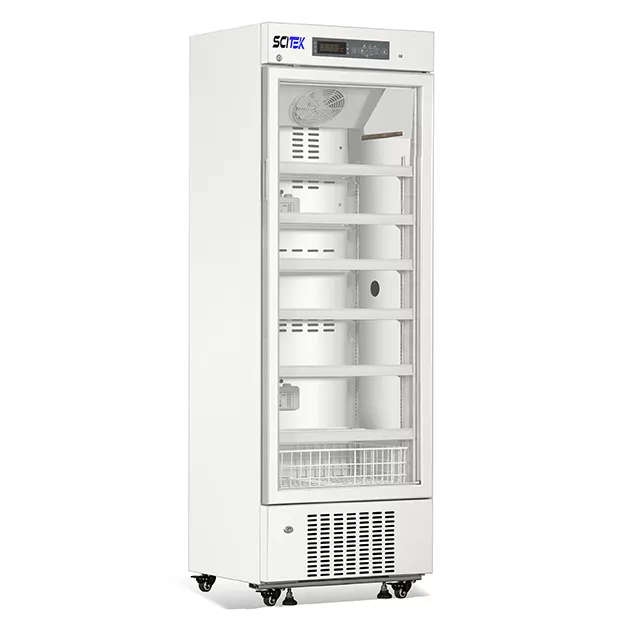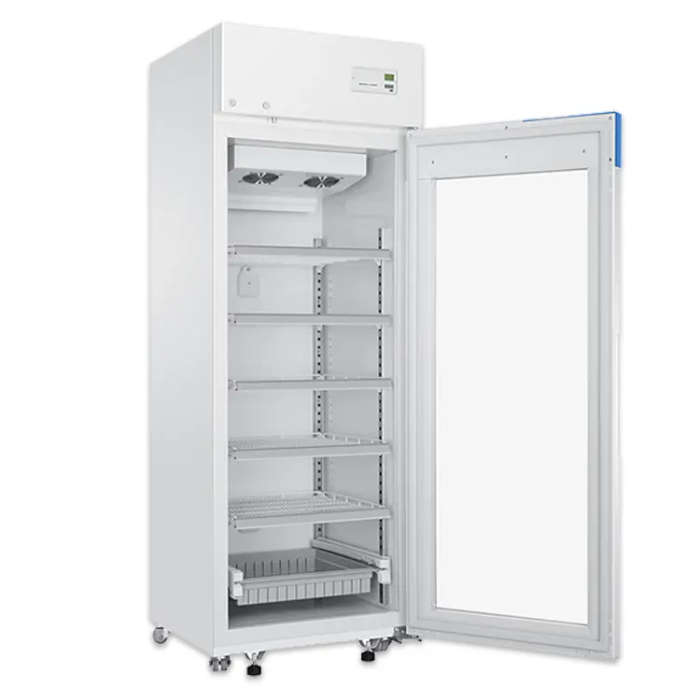







Laboratory Refrigerator 2-15°C
Check my rate
| Main centres: | 1-3 business days |
| Regional areas: | 3-4 business days |
| Remote areas: | 3-5 business days |








| Main centres: | 1-3 business days |
| Regional areas: | 3-4 business days |
| Remote areas: | 3-5 business days |
Laboratory Refrigerator 2-15°C
Laboratory refrigerators are specialized pieces of equipment designed to store temperature-sensitive materials like biological samples, reagents, and vaccines at controlled temperatures.
They are crucial in research, medical, and scientific laboratories for maintaining the integrity and viability of stored items. Unlike household refrigerators, lab refrigerators offer precise temperature control, uniform cooling, and often include features like alarms and specialized compartments.
Laboratory Refrigerator 2-15°C
Here's a more Laboratory Refrigerator 2-15°C detailed uses:
1. Storage of Biological Samples:
Preservation:
Lab refrigerators are essential for preserving biological samples such as blood, tissues, enzymes, and microbial cultures.
Viability:
Precise temperature control ensures these samples remain viable for future analysis and experimentation.
Minimizing Spoilage:
They help prevent spoilage and degradation of valuable samples by maintaining a consistent temperature.
2. Storage of Reagents and Chemicals:
Extending Shelf Life:
Lab refrigerators can extend the shelf life of valuable reagents, reducing waste and improving cost-efficiency.
Preventing Decomposition:
Some chemicals require specific low temperatures to prevent decomposition or unwanted reactions.
3. Storage of Vaccines and Medications:
Maintaining Cold Chain:
Many vaccines and medications require storage within a narrow temperature range, typically between 2°C and 8°C, and lab refrigerators are crucial for maintaining this "cold chain".
Ensuring Efficacy:
Proper storage in lab refrigerators ensures the vaccines and medications retain their effectiveness.
4. Research and Clinical Trials:
Support Research:
Lab refrigerators play a vital role in supporting research activities by providing a controlled environment for various experiments and studies.
Clinical Trial Integrity:
In clinical trials, they are used to store medications and vaccines under strict conditions.
5. Other Applications:
Food Preservation:
While primarily for scientific purposes, lab refrigerators can also be used for preserving food items used in laboratory settings, particularly in research related to food science.
Cryopreservation:
Some lab refrigerators, especially those designed for ultra-low temperatures, are used for cryopreservation (freezing) of cells and other biological materials.
In essence, laboratory refrigerators are designed to maintain the integrity and viability of temperature-sensitive materials used in various scientific and medical fields.
Laboratory Refrigerator 2-15°C